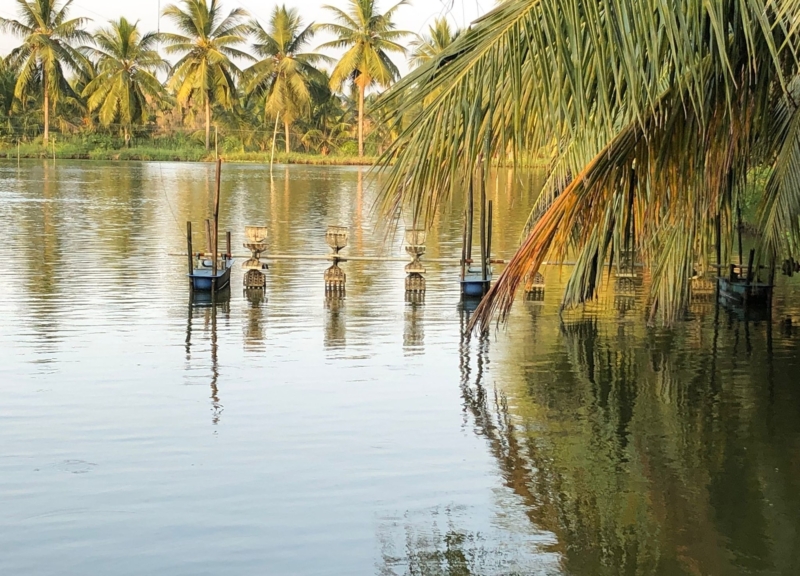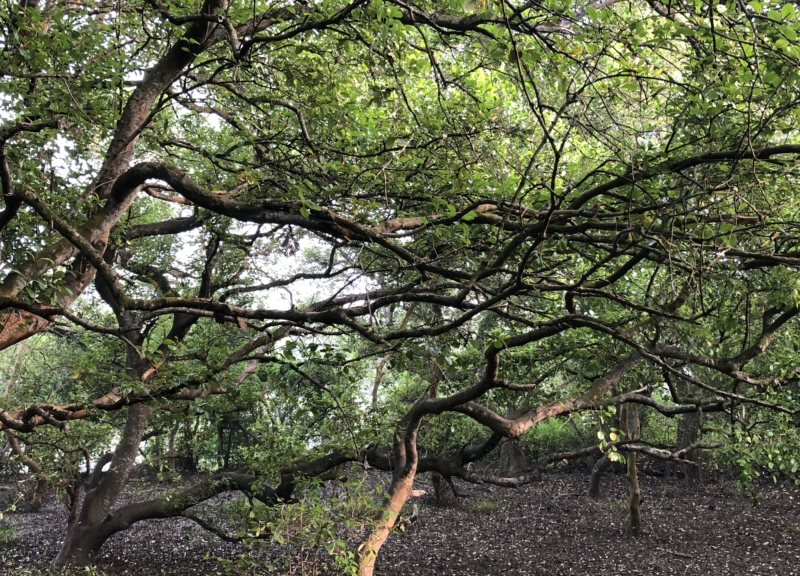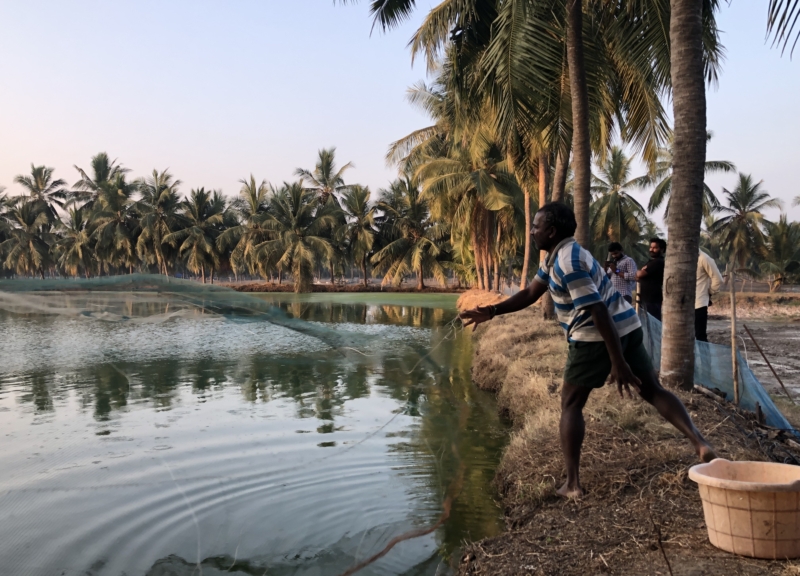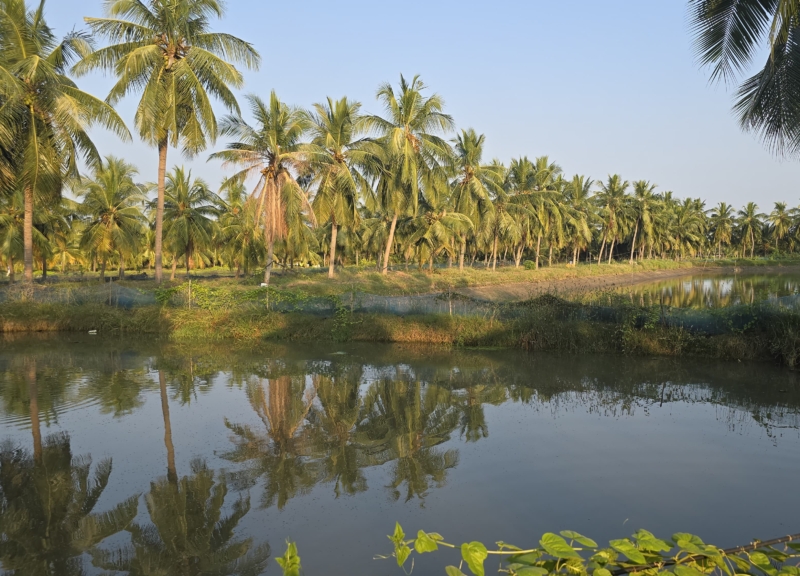Impact Stories
Unlocking Landscape-Level Change for Shrimp Farming in India
Building a model for broader, more effective change in the Andhra Pradesh shrimp farming sector.
SFP worked with the Aquaculture Stewardship Council (ASC) in Andhra Pradesh, India, to develop a model for a landscape-level approach to aquaculture, using the state’s shrimp farming sector as a case study and pilot project. The project involved close collaboration with local organizations, shrimp farmers, and government authorities. The learnings and experiences from this project formed the basis of the SFP-ASC Roadmap for Landscape-Level Improvements in Aquaculture.
A timeline of highlights and insights from our work in Andhra Pradesh
These highlights are organized around some of the key steps in the Roadmap.
Recognize the opportunity
June 2023: SFP and ASC select shrimp farming in Andhra Pradesh for an initial case study, as the rapid growth of this industry is likely to lead to increased environmental and socio-economic pressures. A landscape approach can address these challenges by uniting diverse stakeholders, promoting sustainable practices, and balancing the industry’s growth with environmental preservation and community well-being.
Scope the scale
June 2024 – June 2025: ASC and SFP conduct remote GIS mapping to identify administrative areas (jurisdictions) in which to focus landscape-level improvements. This analysis is refined as more information is revealed in subsequent stages. Click here to read a summary of the assessment.
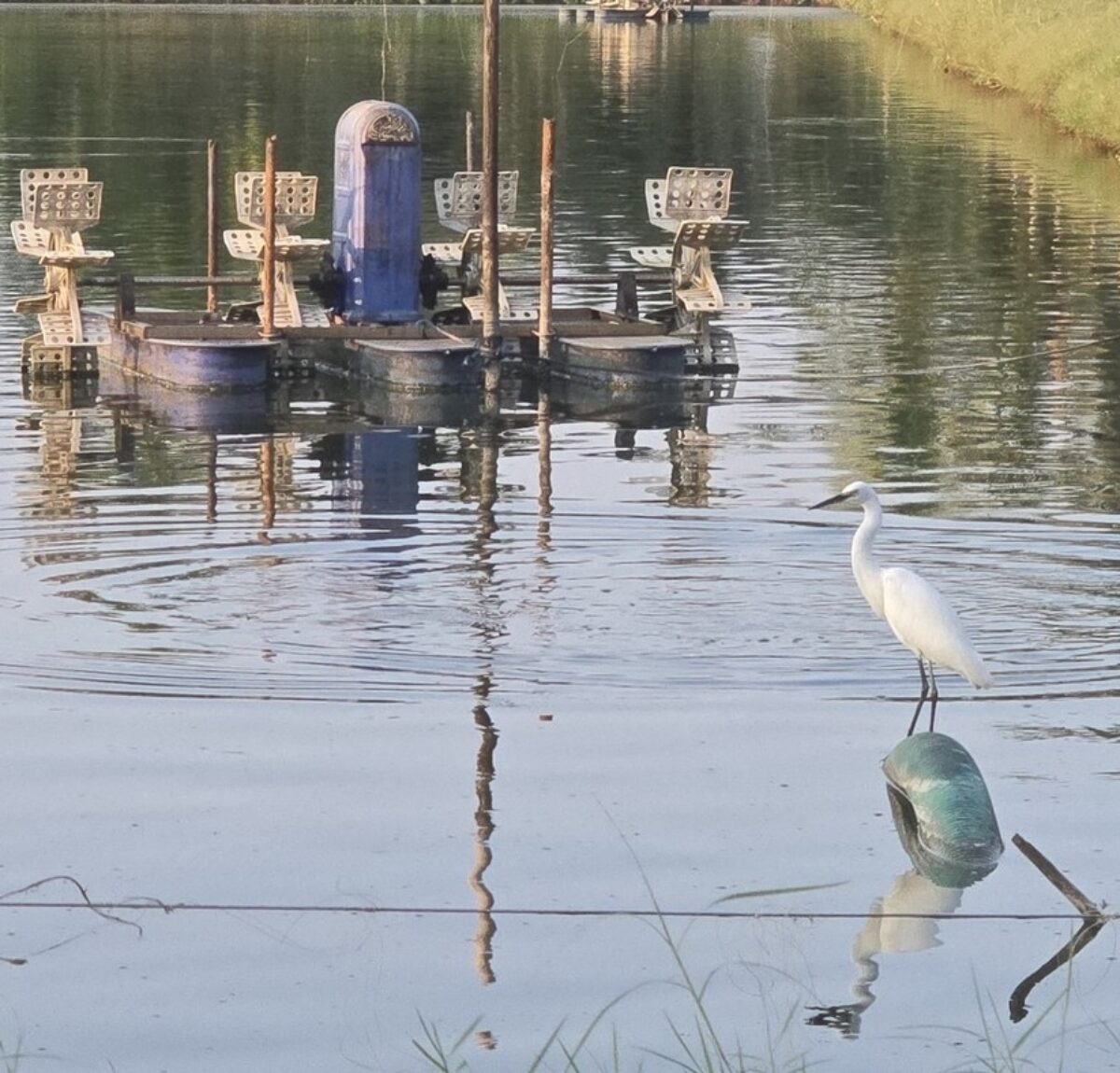
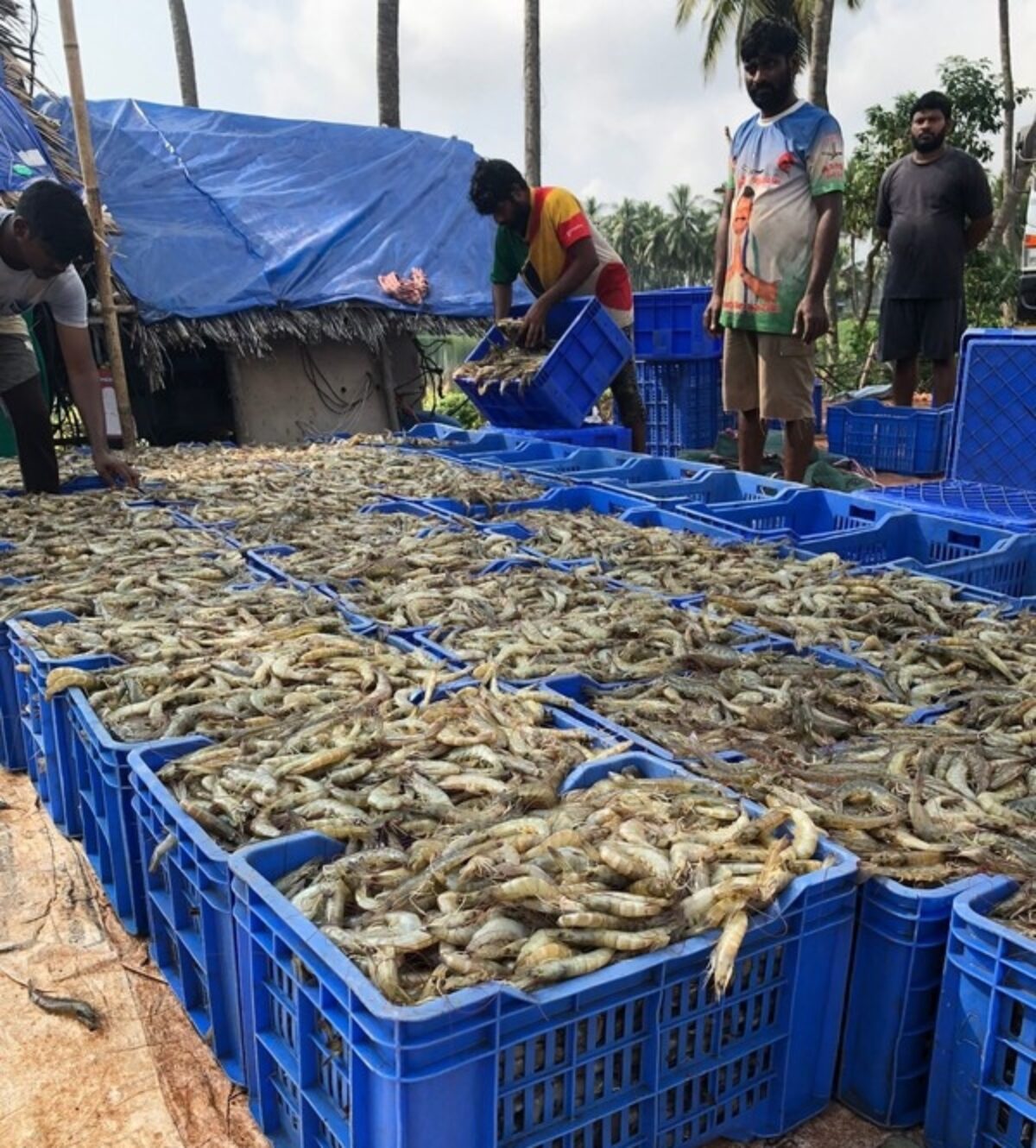
Understand the landscape and its stakeholders
September 2024 – March 2025: Building on a stakeholder workshop attended by local shrimp farming and supply chain stakeholders, local aquaculture experts Seafood Solutions produced a landscape analysis identifying key aquaculture sustainability challenges, stakeholders, and improvement opportunities. Click here to read the analysis.
February-March 2025: Local social and community-focused organizations the Dakshin Foundation and Living Landscapes conducted an assessment of social and community sustainability challenges, stakeholders, and improvement opportunities. Click here to read the assessment.
March 2025: Good Clout Consulting conducted an analysis of other improvement projects operating in Andhra Pradesh’s farmed shrimp sector and key opportunities for greater landscape-level collaboration. Click here to read the analysis.
Enable local expertise: Refine, Repeat, and Reengage
December 2024 and February 2025: SFP and ASC staff conduct a series of field visits to Andhra Pradesh, to deepen understanding and promote the landscape approach both within the industry and to the international audience and supply chain. These included a joint visit by SFP CEO Jim Cannon and ASC CEO Chris Ninnes, who later shared their insights during panels at Seafood Expo North America 2025 in Boston and Seafood Expo Global 2025 in Barcelona.
Define success and monitor progress
June 2025: ASC and SFP produced a gap analysis of tools in the public domain that could be used to track progress and provide metrics of assurance for landscape-level initiatives in India and elsewhere. Click here to read the gap analysis.
This gap analysis was then used to create a monitoring and evaluation (M&E) framework that identifies the metrics to measure impact at increasing geographic scales and the platforms that can support this. Click here to read the framework.
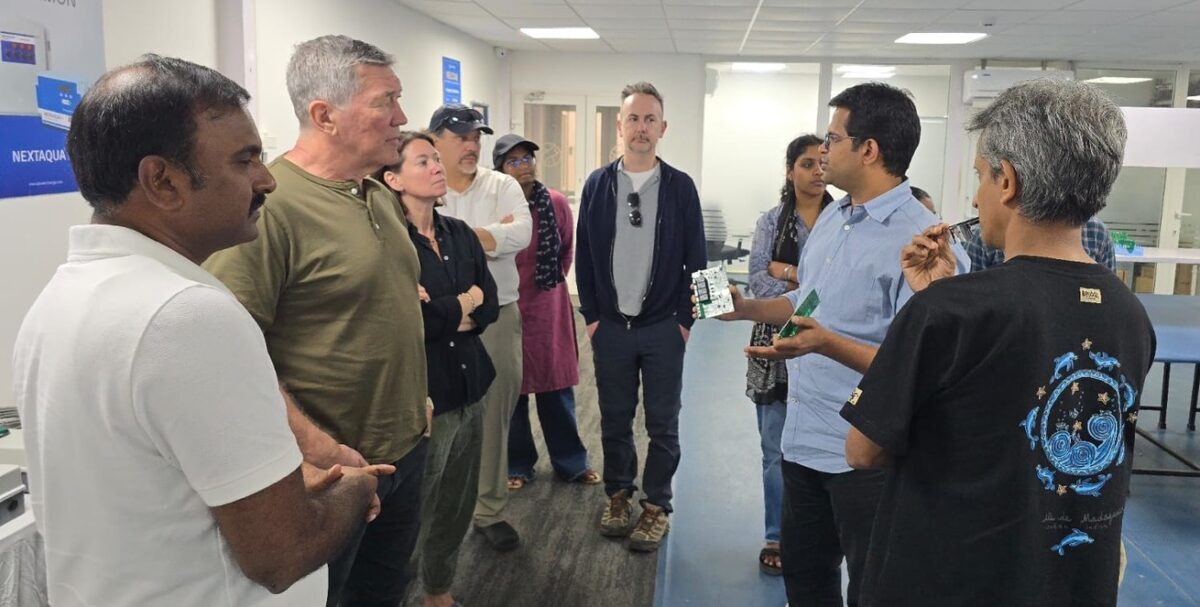
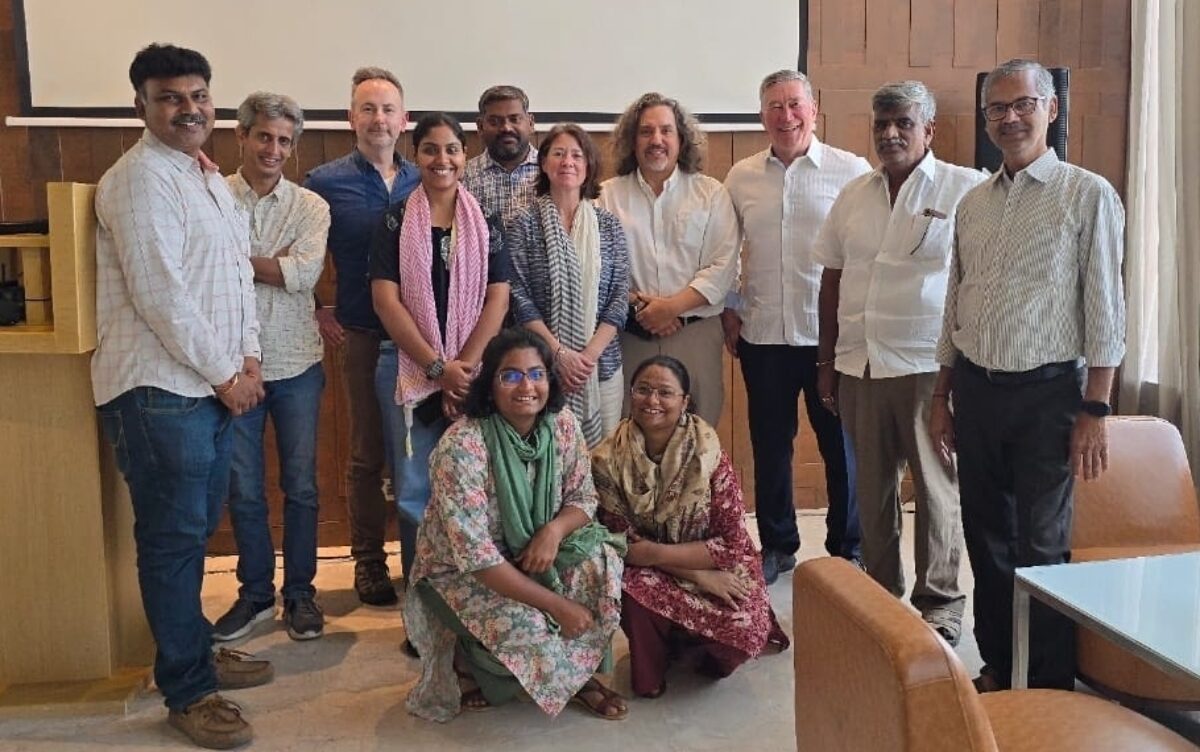
A Wealth of Innovation in Action
Several ongoing and planned projects in Andhra Pradesh – led by NGOs and local experts – are dedicated to improving shrimp farming, with a strong focus on small-scale producers. These initiatives aim to drive scaled improvements and are actively engaging with government, farming, and community stakeholders, as well as technology providers.
Although these projects may not formally identify as landscape initiatives, many align with the core principles of mature landscape approaches. This presents a compelling opportunity to report collectively, through landscape-level platforms such as SourceUp or LandScale. Doing so could increase transparency, reduce duplication of effort, and unify individual efforts under a shared landscape. We invite all these projects to explore this possibility with us and encourage you to learn more about these projects in this inventory of projects in Andhra Pradesh.
“It was great collaborating with ASC and SFP. Their expertise in mobilizing global seafood markets towards sustainability is commendable. Their global network of actors is helping us foster industry stewardship for our work on fisheries sustainability in India.”
– The Dakshin Foundation
The Road Ahead: Planning your next steps and actions
The findings from our application of the Roadmap in Andhra Pradesh are an invitation to collaborate, innovate, and drive meaningful, verifiable change in this sector. The path forward is clear: commit, engage, and launch.
We invite you to explore the key findings in the Roadmap related to improvement needs, stakeholders, existing initiatives, barriers, opportunities, and incentives within the Andhra Pradesh shrimp farming sector and apply these learnings to your own situation. However, plan appropriately and be patient, as change at this scale takes time.
Next steps include:
- Engage with identified local experts, other projects, and AIP implementers, such as the Improver Programme by ASC, ThinkAqua etc., to review and discuss relevant findings from shrimp farming in Andhra Pradesh.
- Co-develop an initial workplan that outlines the identified priority location, landscape-level issue(s), improvements required, and stakeholders (including supply chain actors) who should be involved and consulted for your region.
- Implement the monitoring and evaluation framework provided in this Roadmap to plan how you will measure and demonstrate progress and success.
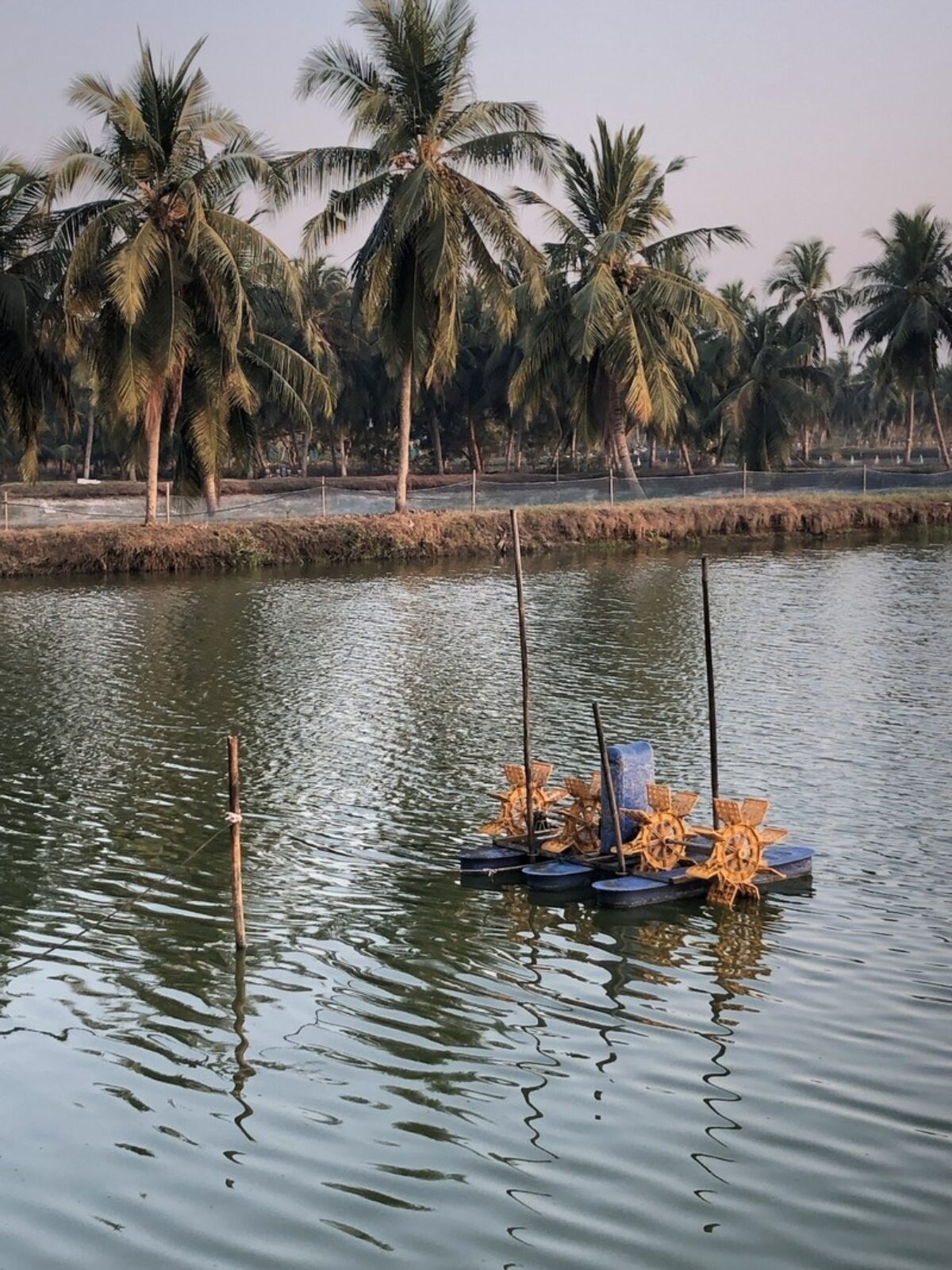
“Our collaboration with the ASC and SFP team was a great experience, allowing us to build on our strengths and focus on the importance of effective stakeholder engagement and data synthesis for identifying actionable opportunities in shrimp aquaculture. Engaging with the Dakshin Foundation team also allowed us to better understand the perspectives of NGOs focused on social issues. We are eager to see this work put to use and hope it will lead to targeted recommendations and the piloting of sustainable solutions in collaboration with industry partners.”
– Mr. A.B.Ch.Mohan, Managing Partner, Seafood Solutions
The SFP and ASC advantage
SFP and ASC are two science-based, people- and nature-focused NGOs working toward shared goals that ensure that seafood is sustainably and responsibly managed.
- SFP promotes large-scale improvements in aquaculture using an ecosystem-based approach that recognizes the interconnectedness of farms and their cumulative environmental impacts.
- ASC sets high standards for aquaculture, promoting transparency and traceability across the seafood supply chain. It focuses on driving meaningful improvements in seafood farming through rigorous standards and on-the-ground programs.
Want to know more?
You can learn more about our work in Andhra Pradesh and the opportunities that landscape-level approaches present for habitat and small-scale farmers in a series of blogs by SFP’s Aquaculture Information Manager Paul Bulcock.
Related links
ASC and SFP reports and outputs
SFP-ASC Roadmap for Landscape-Level Improvements in Aquaculture
Whitepaper: A Roadmap for Landscape-Level Improvements in Aquaculture
From isolated efforts to collective impact: A new way forward for aquaculture
Connectivity Assessment Mapping Summary for Andhra Pradesh
Improvement Needs in Indian Shrimp Farming: A Landscape Analysis Report
Comprehensive Social-Ecological Assessment of the Shrimp Aquaculture Sector in Andhra Pradesh, India
Shrimp Aquaculture Project Inventory and Analysis: An Inventory of Projects in Andhra Pradesh, India
ISEAL reports
Core Criteria for Mature Landscape Initiatives: A collective position paper (2024)
Roadmap partners
Landscape-level reporting platforms
Aquaculture improvement implementers

This research and reports were made possible through funding by the Walmart Foundation. The findings and recommendations presented in this report are those of Sustainable Fisheries Partnership alone and do not necessarily reflect the opinions of the Walmart Foundation.

